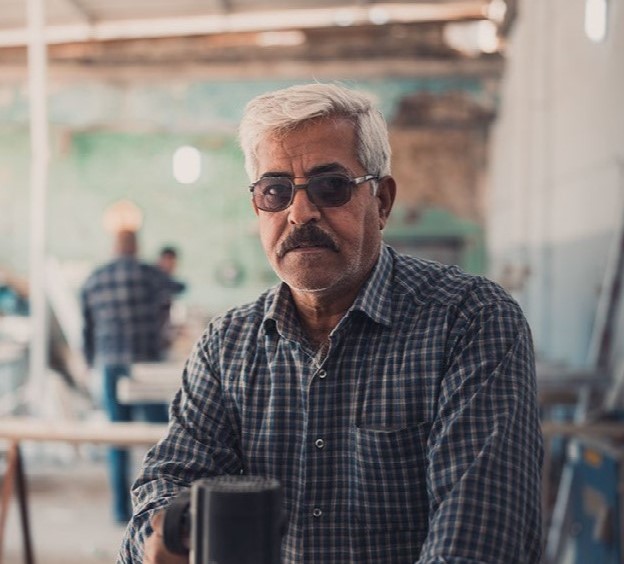
Saeed*, a 54-year-old father of six, lives with his children and his mother in Mosul.
Saeed owns the Al-Arqoub Plastic and Aluminum factory in west Mosul. He opened his PVC business in 1999, and after a difficult start Saeed’s hard work allowed him to expand the factory up to employing 12 full-time workers.

In 2014, when ISIL attacked Mosul, most of Saeed’s employees had to flee for their lives. The factory was hit by missiles and half of the building was destroyed. Work stopped for almost three years. “Life was very hard as we only had two choices. We either stayed at home and closed our doors and windows, or fled to the north, risking being caught by ISIL and killed,” said Saeed.
-min.jpg)
Saeed describes how the period under ISIL occupation led to the collapse of not just the economy but people’s mental well-being, because of the constant fear they felt. His youngest son was so terrified that he would often sit next to his parents and squeeze their hands tightly, afraid that an ISIL unit would come close to their house. “Imagine hearing missiles flying above your house, not knowing if one would hit you and when. You could only sit there and pray to God that you would be spared,” recalled Saeed.

In 2017 Saeed tried to reopen his business because he needed to earn an income and provide for his family, but in the battles to retake Mosul, a second missile hit his factory and destroyed what was left of it.
“During the battles to retake Mosul, my daughter was about to give birth to her first child but there were no doctors or hospitals to go to. Risking my life for her and her unborn baby, I came out of the house towards the Iraqi army, holding a white flag and shouting for help,” explained Saeed. “All the guns were pointing at me. I took off my clothes and put my hands above my head. They eventually helped and took my daughter to a caravan where they had doctors. She gave birth to my beautiful grand-daughter and we called her Tahrir (liberation).”
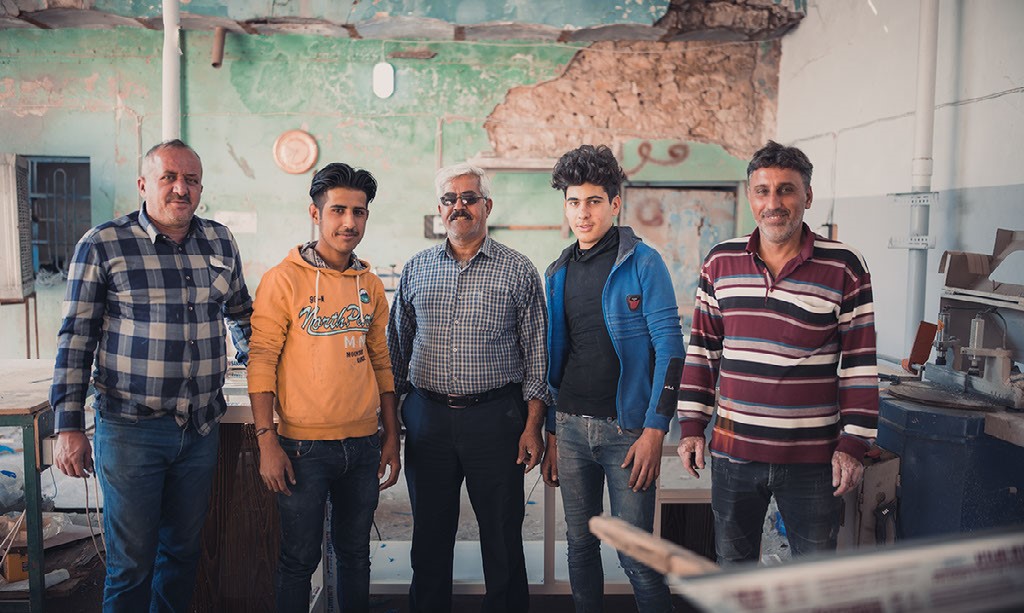
After Mosul was retaken, the security and economic situation slightly improved and Saeed reopened his business with some second-hand equipment in the partially rebuilt factory. When a friend told him about IOM Iraq’s Enterprise Development Fund (EDF), Saeed applied, and was selected as a grant recipient. With the grant, Saeed rehabilitated the rest of the factory building and bought all the necessary equipment; he also hired three new employees.
-min.jpg)
Saeed says that the EDF project is providing valuable opportunities to help business owners get back on their feet. The project also generates employment, as stronger businesses can hire more people. Employment opportunities are also motivating internally displaced persons to come back – two of Saeed’s former employees came back to Mosul when they heard the factory was open for business again.

Dakhil*, 18, is a new employee at Al-Arqoub. He has seven younger siblings who depend on him because their father is sick. Dakhil was a student when ISIL took Mosul. A missile hit his family’s house, badly injuring his father and grandmother; Dakhil had to leave school and start working to provide for his family.
Dakhil came to Saeed’s factory looking for a job, as he had previously worked as a day laborer in PVC factories and had experience with PVC and aluminum. He was hired and started working at the factory as a technician. Thanks to this job, Dakhil has recently decided to resume his education.
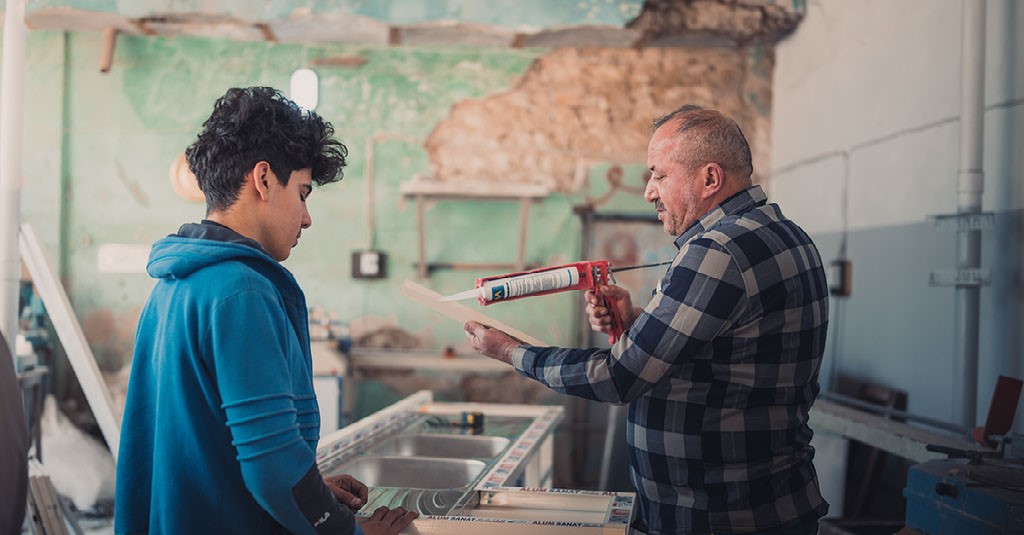
“This job helps me finance my studies and provide for my family. Without it, I would not be able to go to school,” said Dakhil.
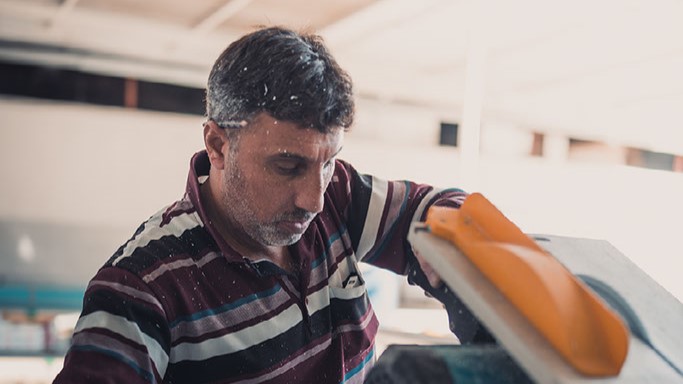
Faris* is a 45-year-old father of eight. Before ISIL came to Mosul, he had worked at Al-Arqoub factory for 10 years.
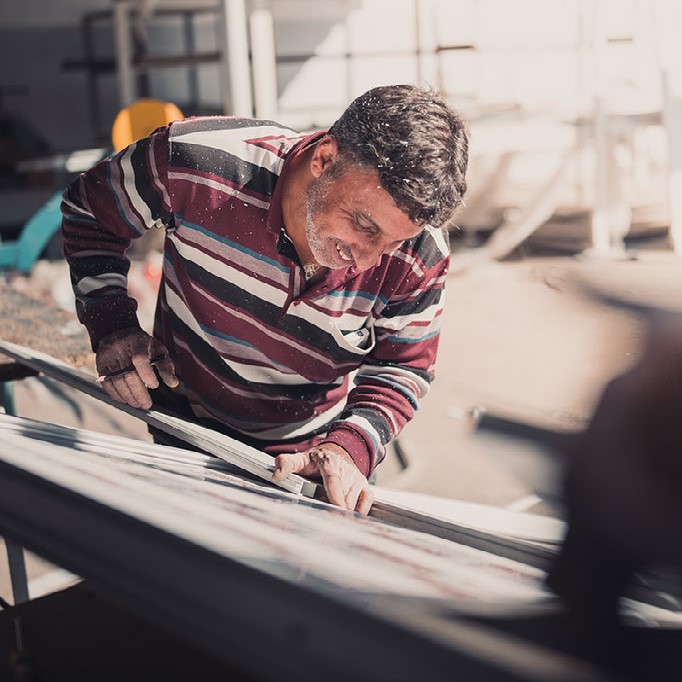
Faris and his family fled to Duhok Governorate in search of safety and better living conditions after the occupation, but life there was hard. It was difficult for Faris to find a job and his expenses were high, as he had to pay for rent and take care of his eight children needs.
With a new team in place, and his factory’s activities back on track, Saeed has a renewed sense of hope.
“When ISIL took Mosul, we forgot the value of humanity, but IOM has shown us that everyone has the right to live in a peaceful world without fear,” said Saeed.
-min.jpg)
Al-Arqoub Plastic and Aluminum factory is supported by EDF, an initiative co-funded by U.S. Department of State: Bureau of Population, Refugees, and Migration (PRM)
* Names and some identifying details have been changed to protect the privacy of individuals.
Credits:
Story by: Sazan Gawdan with contributions from Avand Hasan/IOM Iraq - Photo credit: Anjam Rasool & Hersh Yaseen/IOM Iraq



